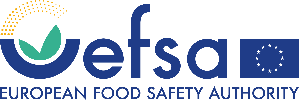Scientific Officer Chemistry/Toxicology
- 📁
- Science Professionals
- 📅
- EFSA/F/4/2023/04 Requisition #
- 📅
- Jul 27, 2023 Post Date
WHAT ARE THE SELECTION REQUIREMENTS?
You must satisfy the following requirements on the closing date for submission of your application:
I. Eligibility criteria
1. General requirements
• Be national of a Member State of the European Union, Iceland or Norway;
• Enjoy full rights as a citizen;
• Have fulfilled any obligations imposed by laws concerning military service;
• Be physically fit to perform the duties linked to the post;[1]
• Have a thorough knowledge of one of the EU official languages and a satisfactory knowledge of another EU language;
• Meet the character requirements for the duties involved.
2. Qualifications
A level of education which corresponds to completed university studies of at least three (3) years attested by a diploma in one of the following areas: chemistry, food chemistry, pharmacy, veterinary sciences, biology, biotechnology, epidemiology, toxicology, food technology, food sciences, engineering, environmental sciences or related areas. [2]
In case you do not fulfil all the eligibility criteria, your application will not be taken into consideration.
II. Selection criteria
The following competencies will be assessed throughout the different phases of the selection procedure. Candidates are also expected to demonstrate effective communication in both spoken and written English as well as strong motivation for the position.
1. Technical competencies
Professional experience in the area of Chemistry (at least in 1 area)
o Analytical Chemistry
o Organic Chemistry
o Inorganic Chemistry
o Polymer Chemistry
o Biochemistry
o Pharmaceutical Chemistry
o Environmental Chemistry which may include exposure modelling
o Food Chemistry
o Chemical risk assessment
o Chemical substance identification and characterisation including for particulate materials nanoparticle identification
and/or Professional Experience in the area of Toxicology (at least in 1 area)
o Mammalian toxicology
o Epidemiology
o Ecotoxicology
o Toxicological pathology
o Environmental Toxicology
o General toxicology
o Immunotoxicology
o Endocrinology
o Neurotoxicology and developmental neurotoxicology
o Reproductive and developmental toxicology
o Cardiovascular toxicology
o Genetic toxicology and cancer biology
o Drug metabolism
ii. Perform evidence-based scientific assessments, including risk and/or benefit assessment and product characterisation, preferably in areas related to food and feed primary production or manufacturing and processing after harvest/slaughter.
iii. Experience in writing and reviewing scientific documents such as scientific articles, reports, opinions in the area of Chemistry, Toxicology or both.
iv. Experience in at least one of the following areas: Carry out generation, collection, collation, extraction, critical analysis and evaluation of data (e.g. chemical characterisation, food consumption data, environmental data, data from human/animal studies, statistical analysis of studies, new alternative methodologies, nanotechnologies).
v. Experience in providing scientific support to different stakeholders, conveying technical scientific concepts and/or regulatory requirements (both orally and in writing).
vi. Manage scientific projects by selecting and using appropriate project management techniques and tools.
2. Behavioural competencies
i. Deal with ambiguity: Able to work constructively within unexpected and unpredictable situations and show resilience and composure, even in difficult or adverse circumstances; able to decide and act without having the total picture; accept constructive feedback in a positive manner.
ii. Demonstrate political savvy and strategic agility: Look beyond the current situation and visualise what the future can bring with a keen sense for arising opportunities and good understanding of how and when to best pursue them; able to think in a creative and innovative way.
iii. Focus on stakeholder needs: Committed to meet the expectations and requirements of internal and external stakeholders; establish and maintain effective relationships with stakeholders and gain their trust and respect.
iv. Plan and measure for results: Set ambitious goals that exceed the targets and create plans to achieve them; ensure an efficient and responsible planning and management of resources.
v. Work with others: Work confidently within a group and contribute to achieve the common goals, understanding own role and how it supports the team and the organisation; able to cooperate, listen actively, manage conflicts and motivate colleagues.
NOTE
Candidates are invited to read the ANNEX that represents an integral part of this vacancy and provides information on how to complete the application, the steps of the selection process and appeal procedures.
Corrigendum text:
The below answer options have been adapted in the question 8 of the application form questionnaire related to the years of experience with performing evidence-based scientific assessments due to an error in the original publication.
Answer option "More than 1 year of practical experience” to “More than 1 year but less than 3 years of practical experience”
Answer option "More than 1 year but less than 3 years of professional experience” to “More than 3 years of practical experience”
[1] Before appointment, a successful candidate shall be medically examined by an institution’s medical officer in order that the European Food Safety Authority may be satisfied that the candidate fulfils the requirement of article 28(e) of the Staff Regulations of the Officials of the European Communities.
[2] Any academic qualification mentioned in the application form shall be duly supported by evidence (original or certified copies of e.g. diplomas, certification, etc.) Only qualifications issued by EU Member State authorities and qualifications recognised as equivalent by the relevant EU Member State authorities will be accepted. In instances where diplomas are obtained from a non-EU Member State, EFSA may request the candidate to provide a relevant document of comparability issued by a recognised authority.
